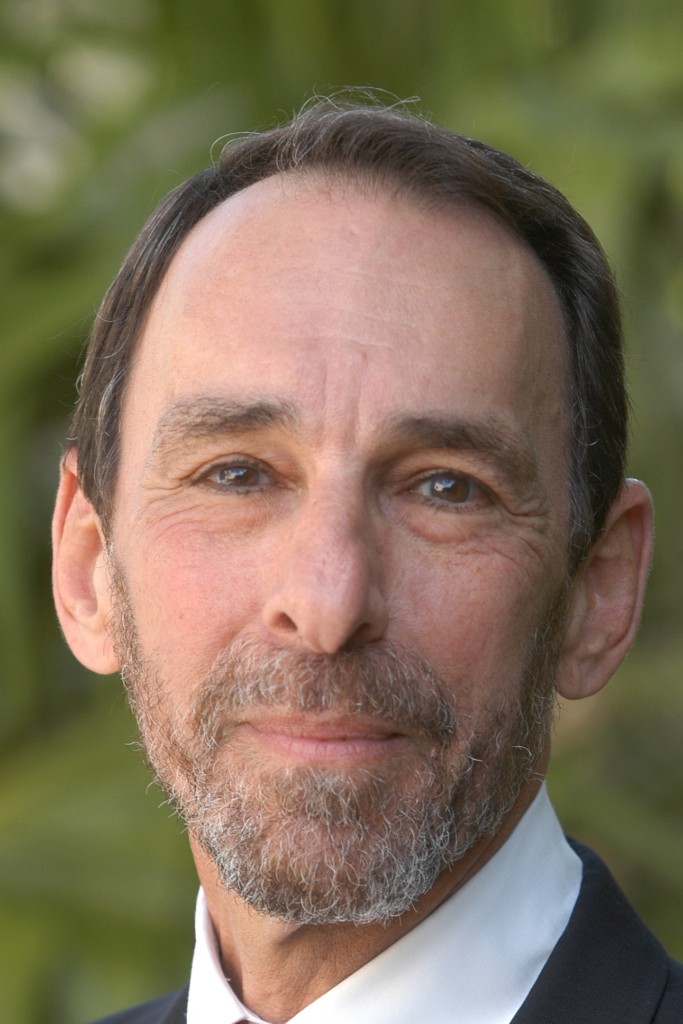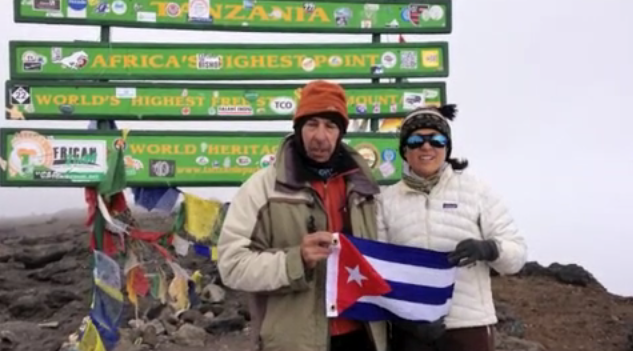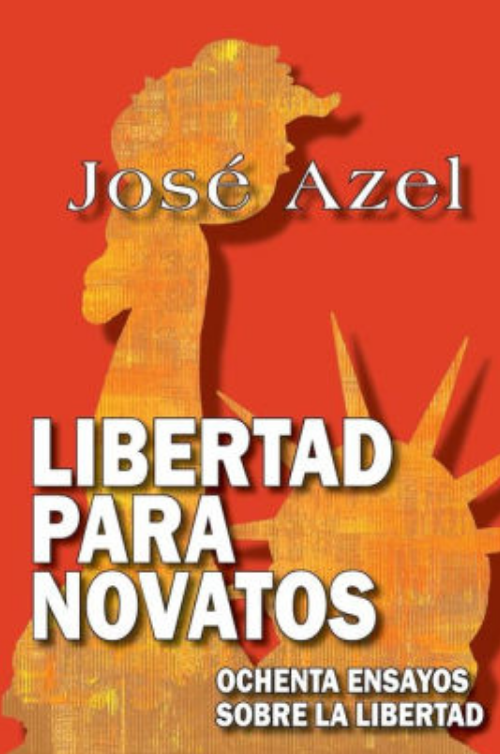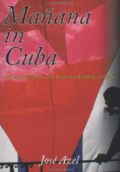|
|
|
Vea abajo la versión en español.
Documented deaths in 2018: more victims of the Cuban revolution
As we approach the 60th anniversary of the Castro regime’s rise to power on January 1st1959, Cuba Archive is compelled to report (herein) the documented deaths for the year 2018 as well as to notify of an update on our website of our work-in-progress on deaths and disappearances during six decades of communist rule. All 7,330 documented cases have individual records (see database.cubaarchive.org). These are the results to date of an ongoing investigation that remains greatly impaired by the closed nature of the Cuban dictatorship and lacking resources for more documentation work.
The actual cost in lives is far higher than our partial findings, but each of these documented cases is a story of loss and injustice. Aside from the thousands of anonymous Cubans perishing and disappearing in prisons or police stations on the island or fleeing the country, hundreds of thousands of victims of Cuba’s international subversion and wars in several continents remain unrecorded. Very few victims from other countries are captured in the database. We may never fully know how many lives have actually been lost to “the Cuban revolution,” but we can remember its victims, mourn their loss, honor their loved ones’ pain, and continue to fight against tyranny and impunity.
Report for 2018
Although we are painfully aware that this is just the tip of the iceberg, 20 deaths were documented as directly attributed to agents of the Cuban state in 2018. In addition, 112 of the 113 passengers of a Cubana de Aviación flight perished shortly after  takeoff from Havana en route to Holguín. The victims of this airplane crash are not included in Cuba Archive’s database pending results of the investigation on the cause of the crash, however, gross negligence by Cuba’s civil aviation authorities is strongly suspected. See our report “Cuba’s commercial aviation crisis and its worrisome record of air disasters” If the Cuban state is responsible for the crash, the tally of documented deaths in 2018 would be 132. takeoff from Havana en route to Holguín. The victims of this airplane crash are not included in Cuba Archive’s database pending results of the investigation on the cause of the crash, however, gross negligence by Cuba’s civil aviation authorities is strongly suspected. See our report “Cuba’s commercial aviation crisis and its worrisome record of air disasters” If the Cuban state is responsible for the crash, the tally of documented deaths in 2018 would be 132.
Following are brief profiles of the 2018 victims
We can only briefly describe the circumstances of death of the victims, however, we remind readers that all these individuals had dreams and hopes shattered prematurely as well as loved ones left behind in great pain and distress.
I. Two former political prisoners likely died from abuses committed by state agents (suspected extrajudicial killings)
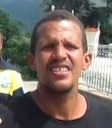 Human rights defender Alexei Pécora Ravel, age 43, died September 3, 2018 at the provincial hospital of Santiago de Cuba three days after suffering a brain hemorrhage likely induced by violent abuses by state authorities. An active member of the opposition group UNPACU (Unión Patriótica de Cuba), he had endured numerous arrests, beatings, and threats. He had been thrown from a moving vehicle at the instruction of a policeman and had sustained injuries to his body and head, the latter impairing his vision, hearing, and memory and causing strong and persistent headaches. Fellow human rights’ defenders believe the injuries led to the brain hemorrhage. State Security agents prevented fellow human rights defenders from attending his funeral. Human rights defender Alexei Pécora Ravel, age 43, died September 3, 2018 at the provincial hospital of Santiago de Cuba three days after suffering a brain hemorrhage likely induced by violent abuses by state authorities. An active member of the opposition group UNPACU (Unión Patriótica de Cuba), he had endured numerous arrests, beatings, and threats. He had been thrown from a moving vehicle at the instruction of a policeman and had sustained injuries to his body and head, the latter impairing his vision, hearing, and memory and causing strong and persistent headaches. Fellow human rights’ defenders believe the injuries led to the brain hemorrhage. State Security agents prevented fellow human rights defenders from attending his funeral.
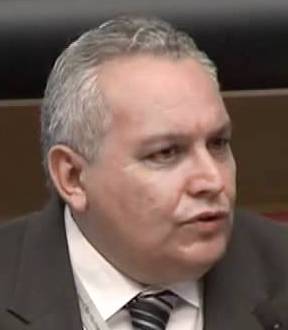 Former political prisoner José Gabriel Ramón Castillo, Pepín, age 61, died July 16, 2018 at the Hollywood Memorial Hospital, in Florida, USA, of a hepatic cirrhosis suspected to have been deliberately induced by prison authorities in Cuba. The independent journalist and human rights defender had been released from prison for medical reasons at the Spanish government’s request and sent into exile to Spain in 2008; he eventually moved to the U.S. He had been serving 20 years of prison after he and 74 other members of Cuba's civil society were punished with decades of imprisonment during Cuba’s Black Spring of 2003. Pepín had arrived in prison in good health but had contracted hepatitis, diabetes, and severe dermatitis there, conditions aggravating with no medical treatment and as a result of psychological and other types of torture. Pepín had worked at the Universidad de Oriente but had been expelled in 1993 for founding a human rights' organization, Instituto Independiente Cuba y Democracia, that offered workshops on civil rights at his home in Santiago de Cuba. He had endured persistent harassment, arrests, and threats from authorities. See his 2009 filmed testimony in Spanish (5:17 mins.). Former political prisoner José Gabriel Ramón Castillo, Pepín, age 61, died July 16, 2018 at the Hollywood Memorial Hospital, in Florida, USA, of a hepatic cirrhosis suspected to have been deliberately induced by prison authorities in Cuba. The independent journalist and human rights defender had been released from prison for medical reasons at the Spanish government’s request and sent into exile to Spain in 2008; he eventually moved to the U.S. He had been serving 20 years of prison after he and 74 other members of Cuba's civil society were punished with decades of imprisonment during Cuba’s Black Spring of 2003. Pepín had arrived in prison in good health but had contracted hepatitis, diabetes, and severe dermatitis there, conditions aggravating with no medical treatment and as a result of psychological and other types of torture. Pepín had worked at the Universidad de Oriente but had been expelled in 1993 for founding a human rights' organization, Instituto Independiente Cuba y Democracia, that offered workshops on civil rights at his home in Santiago de Cuba. He had endured persistent harassment, arrests, and threats from authorities. See his 2009 filmed testimony in Spanish (5:17 mins.).
II. Seven deaths in prison or detention
A detainee was reported killed extrajudicially, three prisoners were reported as having committed suicide by hanging (they were induced or killed extrajudicially), and four prisoners died lacking medical care.
Yojander Espinosa Rodríguez, age 28, was found dead, hanging in his punishment cell, on May 2, 2018 at Canaleta provincial prison of Ciego de Avila. Fellow inmates suspected that prison guards killed him. He was serving an 8-year prison sentence for robbing a grocery store.
 Raidel Garcia Otero, age 29, died January 23, 2018 at the Salvador Allende Hospital of Havana. An economic technician at a military-owned company, he was being held under a 'precautionary measure' since October 2016 at the Valle Grande prison of Havana. Fellow prisoners notified the family that he was very ill, suffering from organ inflammation, and was not receiving medical attention. His parents went to the prison but were not allowed to see him. He was transferred to the hospital in a coma without his family being notified and he died four days later. Raidel Garcia Otero, age 29, died January 23, 2018 at the Salvador Allende Hospital of Havana. An economic technician at a military-owned company, he was being held under a 'precautionary measure' since October 2016 at the Valle Grande prison of Havana. Fellow prisoners notified the family that he was very ill, suffering from organ inflammation, and was not receiving medical attention. His parents went to the prison but were not allowed to see him. He was transferred to the hospital in a coma without his family being notified and he died four days later.
Miguel Angel Martínez Torres, age 44, died February 23, 2018 at Canaleta Prison, Ciego de Avila, of a reported heart attack, denied medical attention. He had been taken to the Ciego de Ávila provincial hospital after complaining of chest pain and headaches and the doctor had ordered that he remain in observation. The prison officer, however, refused to allow that and took him back to prison, where he died in his cell without medical attention.
Geovany Matos Mata, age 27, allegedly hanged himself January 1, 2018 at Canaleta Prison, Ciego de Avila. He had been asking prison authorities for medical and humanitarian assistance, but was instead beaten several times by prison guards. Fellow prisoners believe he was induced to commit suicide.
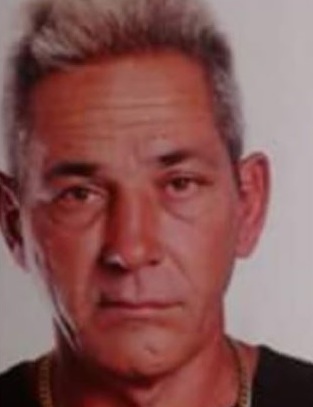 Alejandro Pupo, age 46, was reportedly murdered by state agents at a police station in Placetas, Villa Clara province, on August 9, 2018. He had been arrested two days earlier on charges of illicit horse racing, which the family said had been fabricated. According to a fellow detainee, he was having a nervous breakdown when several policemen beat him with nightsticks and clubs and threw him to the ground, kicking him. Prison authorities fetched the lifeless body only after fellow detainees complained; he was pronounced dead on arrival at the hospital. The family insisted on viewing the body, which had been placed under lock, photographing its multiple signs of trauma. A small funeral was allowed with heavy police presence and human rights activists who tried to attend were not allowed. A fellow detainee who witnessed the killing and the victim’s relatives denounced the assassination by video and posted the photos of the injured body on the social media account of Antúnez, a leading human rights’ activist from Placetas. They suffered threats and arrests from authorities and some recanted under duress; a 4-year old child was pushed and scratched during their parents’ arrest. Alejandro Pupo, age 46, was reportedly murdered by state agents at a police station in Placetas, Villa Clara province, on August 9, 2018. He had been arrested two days earlier on charges of illicit horse racing, which the family said had been fabricated. According to a fellow detainee, he was having a nervous breakdown when several policemen beat him with nightsticks and clubs and threw him to the ground, kicking him. Prison authorities fetched the lifeless body only after fellow detainees complained; he was pronounced dead on arrival at the hospital. The family insisted on viewing the body, which had been placed under lock, photographing its multiple signs of trauma. A small funeral was allowed with heavy police presence and human rights activists who tried to attend were not allowed. A fellow detainee who witnessed the killing and the victim’s relatives denounced the assassination by video and posted the photos of the injured body on the social media account of Antúnez, a leading human rights’ activist from Placetas. They suffered threats and arrests from authorities and some recanted under duress; a 4-year old child was pushed and scratched during their parents’ arrest.
Alejandro Socarrás Rodriguez, age 40, was found dead by hanging reportedly by his own hand on September 5, 2018 at the Guamajal prison, Villa Clara province. He was serving a 17-year prison sentence for disobeying authorities (“desacato”). Prison authorities refused to acknowledge or provide treatment for his mental illness and alleged that he feigned being crazy. He had endured two beatings from prison guards. Fellow prisoners believe he was induced to commit suicide.
Bárbaro Verdecia, age 29, died in October 2018 at Combinado del Este prison of Havana. The common prisoner contracted a bacterial infection and died without receiving medical attention.
Note: Cuba Archive documents reported deaths in prison regardless of the cause of imprisonment due to the absence of rule of law and due process in Cuba, the impossibility of monitoring by independent agencies or organizations, and the conditions in Cuban prisons of torture and cruel and unusual punishment. Only a minor fraction of the actual deaths occurring in Cuba’s prisons are reported and there is an extreme lack of access to detention and prison facilities. However, these documented cases illustrate the terrible conditions and abuses that all prisoners, common or political, are enduring. See Cuba Archive’s August 2018 report “Persistent extrajudicial killings of prisoners in Cuba” and our October 2018 report “How many political prisoners are there in Cuba?”
III. Four deaths in exit attempts from Cuba (forced migration)
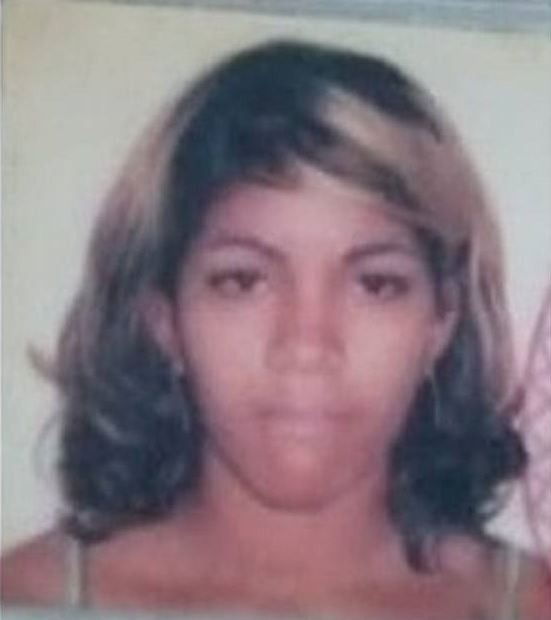 Vivian Rondón Reyes, age 28, drowned November 15, 2018 in the Caribbean Sea near Honduras. She had left Cuba in a small boat the prior week as part of a group of 18 with the intention of reaching the United States. She and a male passenger went overboard during a storm. The man was rescued and Vivian’s body was recovered three days later; 16 other passengers arrived at the Honduran island of Guanaja. Vivian Rondón Reyes, age 28, drowned November 15, 2018 in the Caribbean Sea near Honduras. She had left Cuba in a small boat the prior week as part of a group of 18 with the intention of reaching the United States. She and a male passenger went overboard during a storm. The man was rescued and Vivian’s body was recovered three days later; 16 other passengers arrived at the Honduran island of Guanaja.
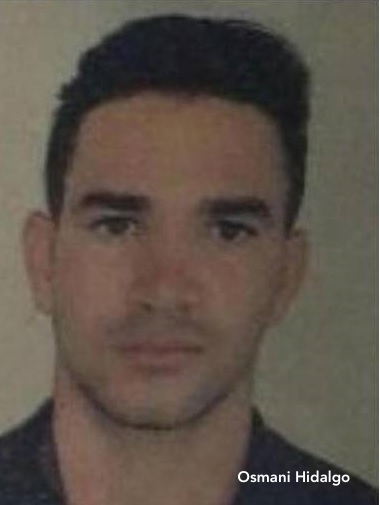 Osmani Hidalgo Leyva, age 21, and the married couple, Niurka García Roque, age 46, and Reinaldo Delgado Díaz, age 45, died at Santa Victoria del Palmar, Brazil, with five other people in an automobile accident. They had all flown from Cuba to Guyana and from there to Porto Alegre, Brazil, where they had boarded a taxi to the Chuí region, planned to enter Uruguay illegally to seek work. Osmani’s father and brother, also en route to Uruguay, were traveling in another taxi and were the first to arrive at the scene of the accident. Osmani Hidalgo Leyva, age 21, and the married couple, Niurka García Roque, age 46, and Reinaldo Delgado Díaz, age 45, died at Santa Victoria del Palmar, Brazil, with five other people in an automobile accident. They had all flown from Cuba to Guyana and from there to Porto Alegre, Brazil, where they had boarded a taxi to the Chuí region, planned to enter Uruguay illegally to seek work. Osmani’s father and brother, also en route to Uruguay, were traveling in another taxi and were the first to arrive at the scene of the accident.
IV. Six young Cuban doctors serving as “internationalist collaborators” in remote areas of Brazil died in accidents or of health problems.
 Ramón Domínguez Rivera (8/16/2018), Jaime Alfonso Martínez (10/2018), Luis Alberto Martínez Vila (7/17/2018), Adrián Reyes Valverde (4/29/2018), Yanier Samón de Hombre (8/2/2018), andEduardo Vázquez Roque (11/5/2018) are in Cuba Archive’s database because they were all at the service of the Cuban state, subject to exploitative labor arrangements, enduring hardship and the systematic violation of their basic human rights including wage Ramón Domínguez Rivera (8/16/2018), Jaime Alfonso Martínez (10/2018), Luis Alberto Martínez Vila (7/17/2018), Adrián Reyes Valverde (4/29/2018), Yanier Samón de Hombre (8/2/2018), andEduardo Vázquez Roque (11/5/2018) are in Cuba Archive’s database because they were all at the service of the Cuban state, subject to exploitative labor arrangements, enduring hardship and the systematic violation of their basic human rights including wage confiscation, forced separation from their families, inability to freely leave or enter their country, and inability to exercise their profession freely. For details on this trafficking in persons, see our Fact Sheet and links to our work on this issue. confiscation, forced separation from their families, inability to freely leave or enter their country, and inability to exercise their profession freely. For details on this trafficking in persons, see our Fact Sheet and links to our work on this issue.
Jorge Alberto Borrego Cabrera, age 42, a doctor serving as an “international collaborator” for Cuba in Brazil since 2014 also died in the Cubana de Aviación flight that went down on May 18, 2018. He was in Cuba on vacation from his post in Brazil.
 Best wishes in 2019 Best wishes in 2019
This work seeks to foster a culture of respect for life and the rule of law. By gathering and telling the story of the victims of the Cuban revolution, we hope that people and nations will understand the violent and repressive nature of the Cuban regime and feel compelled to support the people of Cuba in attaining their rightful freedoms.
May all people suffering repression anywhere on this earth attain their right to live in freedom. May there be harmony, peace and justice in a world enlightened by compassion. All the best to you, our readers and supporters, in 2019. |
|
Free Society Project, Inc., 2018. ©All rights reserved.
www.CubaArchive.org
Reproduction and redistribution of this material are authorized as long as the source is cited.
We need your support to continue this work
Please visit our How to Help page to make a donation and learn how to help
disseminate this work. Also, share it with your contacts.
Cuba Archive’s Truth and Memory Project, an initiative of the Free Society Project,
documents loss of life and human exploitation resulting from the Cuban revolution
and promotes the understanding of transitional justice issues —truth, memory, and justice.
|
|
|
|
|


 takeoff from Havana en route to Holguín. The victims of this airplane crash are not included in Cuba Archive’s database pending results of the investigation on the cause of the crash, however, gross negligence by Cuba’s civil aviation authorities is strongly suspected. See our report
takeoff from Havana en route to Holguín. The victims of this airplane crash are not included in Cuba Archive’s database pending results of the investigation on the cause of the crash, however, gross negligence by Cuba’s civil aviation authorities is strongly suspected. See our report  Human rights defender Alexei Pécora Ravel, age 43, died September 3, 2018 at the provincial hospital of Santiago de Cuba three days after suffering a brain hemorrhage likely induced by violent abuses by state authorities. An active member of the opposition group UNPACU (Unión Patriótica de Cuba), he had endured numerous arrests, beatings, and threats. He had been thrown from a moving vehicle at the instruction of a policeman and had sustained injuries to his body and head, the latter impairing his vision, hearing, and memory and causing strong and persistent headaches. Fellow human rights’ defenders believe the injuries led to the brain hemorrhage. State Security agents prevented fellow human rights defenders from attending his funeral.
Human rights defender Alexei Pécora Ravel, age 43, died September 3, 2018 at the provincial hospital of Santiago de Cuba three days after suffering a brain hemorrhage likely induced by violent abuses by state authorities. An active member of the opposition group UNPACU (Unión Patriótica de Cuba), he had endured numerous arrests, beatings, and threats. He had been thrown from a moving vehicle at the instruction of a policeman and had sustained injuries to his body and head, the latter impairing his vision, hearing, and memory and causing strong and persistent headaches. Fellow human rights’ defenders believe the injuries led to the brain hemorrhage. State Security agents prevented fellow human rights defenders from attending his funeral. Former political prisoner José Gabriel Ramón Castillo, Pepín, age 61, died July 16, 2018 at the Hollywood Memorial Hospital, in Florida, USA, of a hepatic cirrhosis suspected to have been deliberately induced by prison authorities in Cuba. The independent journalist and human rights defender had been released from prison for medical reasons at the Spanish government’s request and sent into exile to Spain in 2008; he eventually moved to the U.S. He had been serving 20 years of prison after he and 74 other members of Cuba's civil society were punished with decades of imprisonment during Cuba’s Black Spring of 2003. Pepín had arrived in prison in good health but had contracted hepatitis, diabetes, and severe dermatitis there, conditions aggravating with no medical treatment and as a result of psychological and other types of torture. Pepín had worked at the Universidad de Oriente but had been expelled in 1993 for founding a human rights' organization, Instituto Independiente Cuba y Democracia, that offered workshops on civil rights at his home in Santiago de Cuba. He had endured persistent harassment, arrests, and threats from authorities. See his 2009 filmed
Former political prisoner José Gabriel Ramón Castillo, Pepín, age 61, died July 16, 2018 at the Hollywood Memorial Hospital, in Florida, USA, of a hepatic cirrhosis suspected to have been deliberately induced by prison authorities in Cuba. The independent journalist and human rights defender had been released from prison for medical reasons at the Spanish government’s request and sent into exile to Spain in 2008; he eventually moved to the U.S. He had been serving 20 years of prison after he and 74 other members of Cuba's civil society were punished with decades of imprisonment during Cuba’s Black Spring of 2003. Pepín had arrived in prison in good health but had contracted hepatitis, diabetes, and severe dermatitis there, conditions aggravating with no medical treatment and as a result of psychological and other types of torture. Pepín had worked at the Universidad de Oriente but had been expelled in 1993 for founding a human rights' organization, Instituto Independiente Cuba y Democracia, that offered workshops on civil rights at his home in Santiago de Cuba. He had endured persistent harassment, arrests, and threats from authorities. See his 2009 filmed  Raidel Garcia Otero, age 29, died January 23, 2018 at the Salvador Allende Hospital of Havana. An economic technician at a military-owned company, he was being held under a 'precautionary measure' since October 2016 at the Valle Grande prison of Havana. Fellow prisoners notified the family that he was very ill, suffering from organ inflammation, and was not receiving medical attention. His parents went to the prison but were not allowed to see him. He was transferred to the hospital in a coma without his family being notified and he died four days later.
Raidel Garcia Otero, age 29, died January 23, 2018 at the Salvador Allende Hospital of Havana. An economic technician at a military-owned company, he was being held under a 'precautionary measure' since October 2016 at the Valle Grande prison of Havana. Fellow prisoners notified the family that he was very ill, suffering from organ inflammation, and was not receiving medical attention. His parents went to the prison but were not allowed to see him. He was transferred to the hospital in a coma without his family being notified and he died four days later. Alejandro Pupo, age 46, was reportedly murdered by state agents at a police station in Placetas, Villa Clara province, on August 9, 2018. He had been arrested two days earlier on charges of illicit horse racing, which the family said had been fabricated. According to a fellow detainee, he was having a nervous breakdown when several policemen beat him with nightsticks and clubs and threw him to the ground, kicking him. Prison authorities fetched the lifeless body only after fellow detainees complained; he was pronounced dead on arrival at the hospital. The family insisted on viewing the body, which had been placed under lock, photographing its multiple signs of trauma. A small funeral was allowed with heavy police presence and human rights activists who tried to attend were not allowed. A fellow detainee who witnessed the killing and the victim’s relatives denounced the assassination by video and posted the photos of the injured body on the social media account of Antúnez, a leading human rights’ activist from Placetas. They suffered threats and arrests from authorities and some recanted under duress; a 4-year old child was pushed and scratched during their parents’ arrest.
Alejandro Pupo, age 46, was reportedly murdered by state agents at a police station in Placetas, Villa Clara province, on August 9, 2018. He had been arrested two days earlier on charges of illicit horse racing, which the family said had been fabricated. According to a fellow detainee, he was having a nervous breakdown when several policemen beat him with nightsticks and clubs and threw him to the ground, kicking him. Prison authorities fetched the lifeless body only after fellow detainees complained; he was pronounced dead on arrival at the hospital. The family insisted on viewing the body, which had been placed under lock, photographing its multiple signs of trauma. A small funeral was allowed with heavy police presence and human rights activists who tried to attend were not allowed. A fellow detainee who witnessed the killing and the victim’s relatives denounced the assassination by video and posted the photos of the injured body on the social media account of Antúnez, a leading human rights’ activist from Placetas. They suffered threats and arrests from authorities and some recanted under duress; a 4-year old child was pushed and scratched during their parents’ arrest. Vivian Rondón Reyes, age 28, drowned November 15, 2018 in the Caribbean Sea near Honduras. She had left Cuba in a small boat the prior week as part of a group of 18 with the intention of reaching the United States. She and a male passenger went overboard during a storm. The man was rescued and Vivian’s body was recovered three days later; 16 other passengers arrived at the Honduran island of Guanaja.
Vivian Rondón Reyes, age 28, drowned November 15, 2018 in the Caribbean Sea near Honduras. She had left Cuba in a small boat the prior week as part of a group of 18 with the intention of reaching the United States. She and a male passenger went overboard during a storm. The man was rescued and Vivian’s body was recovered three days later; 16 other passengers arrived at the Honduran island of Guanaja. Osmani Hidalgo Leyva, age 21, and the married couple, Niurka García Roque, age 46, and Reinaldo Delgado Díaz, age 45, died at Santa Victoria del Palmar, Brazil, with five other people in an automobile accident. They had all flown from Cuba to Guyana and from there to Porto Alegre, Brazil, where they had boarded a taxi to the Chuí region, planned to enter Uruguay illegally to seek work. Osmani’s father and brother, also en route to Uruguay, were traveling in another taxi and were the first to arrive at the scene of the accident.
Osmani Hidalgo Leyva, age 21, and the married couple, Niurka García Roque, age 46, and Reinaldo Delgado Díaz, age 45, died at Santa Victoria del Palmar, Brazil, with five other people in an automobile accident. They had all flown from Cuba to Guyana and from there to Porto Alegre, Brazil, where they had boarded a taxi to the Chuí region, planned to enter Uruguay illegally to seek work. Osmani’s father and brother, also en route to Uruguay, were traveling in another taxi and were the first to arrive at the scene of the accident. Ramón Domínguez Rivera (8/16/2018), Jaime Alfonso Martínez (10/2018), Luis Alberto Martínez Vila (7/17/2018), Adrián Reyes Valverde (4/29/2018), Yanier Samón de Hombre (8/2/2018), andEduardo Vázquez Roque (11/5/2018) are in Cuba Archive’s database because they were all at the service of the Cuban state, subject to exploitative labor arrangements, enduring hardship and the systematic violation of their basic human rights including wage
Ramón Domínguez Rivera (8/16/2018), Jaime Alfonso Martínez (10/2018), Luis Alberto Martínez Vila (7/17/2018), Adrián Reyes Valverde (4/29/2018), Yanier Samón de Hombre (8/2/2018), andEduardo Vázquez Roque (11/5/2018) are in Cuba Archive’s database because they were all at the service of the Cuban state, subject to exploitative labor arrangements, enduring hardship and the systematic violation of their basic human rights including wage confiscation, forced separation from their families, inability to freely leave or enter their country, and inability to exercise their profession freely. For details on this trafficking in persons, see our
confiscation, forced separation from their families, inability to freely leave or enter their country, and inability to exercise their profession freely. For details on this trafficking in persons, see our  Best wishes in 2019
Best wishes in 2019
